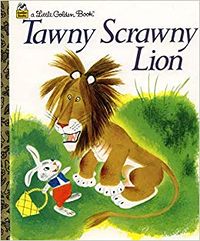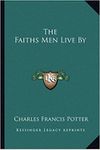Difference between revisions of "Books"
(→Theology) |
(→Theology) |
||
| Line 61: | Line 61: | ||
My great grandmother read to me out of the Bible and told me Bible stories when I was around 7 to 8 years old, and sent me to her local Sunday School (she couldn't go herself, due to health issues). So I got my initial grounding in Christianity from her. | My great grandmother read to me out of the Bible and told me Bible stories when I was around 7 to 8 years old, and sent me to her local Sunday School (she couldn't go herself, due to health issues). So I got my initial grounding in Christianity from her. | ||
| − | [[File:TheFaithsMenLiveBy.jpg|100px|right|Cover of a recent edition]]My general grounding on comparative religion came to me via a book by a Charles F. Potter, called "The Faiths Men Live By". I wrote a short review of this book for Amazon: | + | ====Comparative Religion==== |
| + | |||
| + | [[File:TheFaithsMenLiveBy.jpg|100px|right|Cover of a recent edition]]My general grounding on comparative religion came to me via a book by a Charles F. Potter, called '''"The Faiths Men Live By"'''. I wrote a short review of this book for Amazon: | ||
<blockquote>I had a copy of this book years and years ago, probably around 1963 when I was in my early teens. I read it all the way through, being fascinated with what people believed and how their lives were affected by their beliefs. The author left aside his own opinions and wrote apparently as objectively as he could, finding positive things to say about each faith he wrote about. The book is probably still relevant today, since religious faiths tend to remain and there are very few new ones under the sun -- or at least few new ones that remain relevant over time. Naturally, recent historical events are out of its ken, and if Potter were writing today he might have more to say in some cases, but I'd guess he'd not have much to add.</blockquote> | <blockquote>I had a copy of this book years and years ago, probably around 1963 when I was in my early teens. I read it all the way through, being fascinated with what people believed and how their lives were affected by their beliefs. The author left aside his own opinions and wrote apparently as objectively as he could, finding positive things to say about each faith he wrote about. The book is probably still relevant today, since religious faiths tend to remain and there are very few new ones under the sun -- or at least few new ones that remain relevant over time. Naturally, recent historical events are out of its ken, and if Potter were writing today he might have more to say in some cases, but I'd guess he'd not have much to add.</blockquote> | ||
Revision as of 08:07, 30 April 2021
I've always been a reader. The first word I remember being able to read was the word "AND", which my 1st or 2nd grade teacher wrote on the chalkboard. After my mother died I lived with my great grandmother for a time, until my dad remarried, and she liked to read to me from the Bible. While living with her I was given many children's books, including a number of the Little Golden Books.
My favorite children's book was "Tawny Scrawny Lion"! It starts out:
"Once there was a tawny scrawny lion who chased monkeys on Monday—kangaroos on Tuesday—zebras on Wednesday—bears on Thursday—camels on Friday—and on Saturday, elephants!"
Very elementary, yes, and now that I think about it, it occurs to me that this lion couldn't have chased kangaroos on one day and then zebras the next, since these two types of animals lived about 8,000 miles apart! Never mind. By the time I was in 3rd grade I was reading material normally given to junior high pupils. I was mainly interested in scientific subjects, such as astronomy and dinosaurs. I really didn't care for the "Dick sees Sally run. Sally sees her dog run." that was on offer at that age. I was so disinterested in that drivel that my teacher thought I couldn't read well enough to be advanced to 4th grade, so was going to fail me. But my stepmom came with me to school for a conference about this, and brought one of my favorite science books, about astronomy. She had me read out of the book to the teacher, which apparently surprised her, and so I went into the 4th grade.
How many different books have I read? No way to tell. The following shows the categories of books I have read and am still reading.
Contents
Fiction
General Fiction
I'll confess that "general" fiction mostly bores me. People get all excited about such famous authors as Joyce Carol Oates, Ken Follett, and Dan Brown, but while I recognize their names (seen mostly at book stores) I have never been very interested. I tried reading Prince of Tides by Pat Conroy once (yes, they made it into a movie, which I didn't see), but couldn't even finish the first chapter. On the other hand, military fiction does catch my eye and I have read at least one famous author in that subgenre: Tom Clancy. There's another author, undeservedly quite minor, whose work I have enjoyed, and that's David Sherman. Sherman's work has been primarily been in science fiction (with his friend and co-author Dan Cragg), but he has also written in the military fiction genre.
Tom Clancy
I haven't read Tom Clancy's entire ouerve, but what I have read I have liked. Of course, Clancy's first book was Red October (which was made into a movie, one that I did see, and enjoyed), and I read it about the same time it came out. I loved it! I followed the entire Jack Ryan and associated John Clark series.
David Sherman
- The Night Fighters Series - this is a series of six books about a US Marine unit in Vietnam, part of the Combined Action Platoon program. Since Sherman served in such a unit as a Marine in that war, he had some experience with the program. Of course these are about a fictional CAP unit, and the adventures are likewise fictional. I found the books to be very interesting.
- Knives in the Night - "KNIVES IN THE NIGHT introduces the Marines of Combined Action Platoon Tango Niner and the Popular Forces of Bun Hou village somewhere deep in "Indian Country." The Marines and Vietnamese soon find themselves pitted against Major Nghu, a sadistic North Vietnamese Army officer dedicated to wiping out the Marines and subjugating the South Vietnamese peasants."
- Main Force Assault
- Out of the Fire
- A Rock and a Hard Place
- A Nghu Night Falls
- Charlie Don't Live Here Anymore
Science Fiction
Military Science Fiction
Non-Fiction
Biography
History
Economics
I haven't read many books on economics, but I've found it a fascinating subject.
- Basic Economics by Thomas Sowell. As of February 2020 I am currently reading this surprisingly fascinating economics textbook. I assume it's a textbook, anyway. The first chapter, on Price Theory, is very eye-opening. I kind of already had a grasp on this, but Sowell makes it even more understandable. The book was published in 2015, and it is already on its fifth edition, so this 600+ page book on "the dismal science" seems to have hit a nerve somewhere.
- The Law by Frederic Bastiat - "The Law was originally published as a pamphlet in 1850 by Frederic Bastiat (1801-1850). Bastiat wrote most of his work in the few years before and after the French Revolution of 1848. The Law is considered a classic and his ideas are still relevant today."
- Economics in One Lesson: The Shortest and Surest Way to Understand Basic Economics by Henry Hazlitt - this book is written from the perspective of the Austrian School of economics, which is a libertarian perspective. Hazlitt (1894-1993) was the founder of the Foundation for Economic Education, an organization I have in times past been a follower of.
- The Economy of Cities, by Jane Jacobs - I don't know what attracted me to this book, but as I read it many many years ago I found it very interesting. What was it about? From the books blurb at Amazon: "In this book, Jane Jacobs, building on the work of her debut, The Death and Life of Great American Cities, investigates the delicate way cities balance the interplay between the domestic production of goods and the ever-changing tide of imports. Using case studies of developing cities in the ancient, pre-agricultural world, and contemporary cities on the decline, like the financially irresponsible New York City of the mid-sixties, Jacobs identifies the main drivers of urban prosperity and growth, often via counterintuitive and revelatory lessons."
There've been others, of course.
Science and Technology
I'm mostly into hard sciences.
Theology
As a Christian, my interest in theology should be obvious, but I am also interested in non-Christian religions. It is a good idea to understand how other people believe (or don't believe, in the case of atheists).
My great grandmother read to me out of the Bible and told me Bible stories when I was around 7 to 8 years old, and sent me to her local Sunday School (she couldn't go herself, due to health issues). So I got my initial grounding in Christianity from her.
Comparative Religion
My general grounding on comparative religion came to me via a book by a Charles F. Potter, called "The Faiths Men Live By". I wrote a short review of this book for Amazon:
I had a copy of this book years and years ago, probably around 1963 when I was in my early teens. I read it all the way through, being fascinated with what people believed and how their lives were affected by their beliefs. The author left aside his own opinions and wrote apparently as objectively as he could, finding positive things to say about each faith he wrote about. The book is probably still relevant today, since religious faiths tend to remain and there are very few new ones under the sun -- or at least few new ones that remain relevant over time. Naturally, recent historical events are out of its ken, and if Potter were writing today he might have more to say in some cases, but I'd guess he'd not have much to add.

